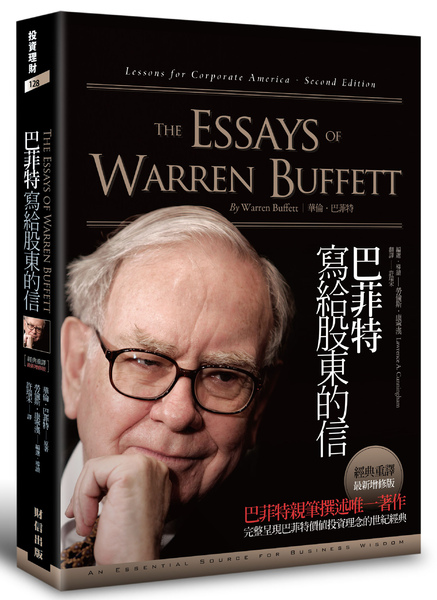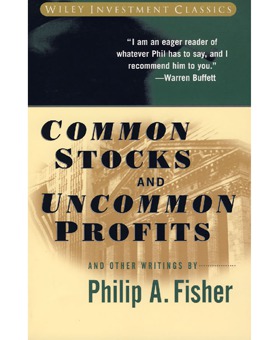Category: warren buffett (Page 1 of 2)
This post is a sequel to a previous story.
Warren, Ben, David, and Taylor meet again. This time they are violently coughing.
Ben: Why is the air is so dirty?
Taylor: Yes, I can hardly see more than a mile through the pollution.
David: It’s sad that we have done this to our once beautiful city. Will we ever be able to clean the air?
Ben: Not sure, perhaps Warren has another great idea?
Warren: I have an idea, but I am not sure if it will work. More of hypothesis really…
David: Any idea is a good idea in these depressing times.
Taylor: Please tell us your idea Warren.
Warren: Well, it’s similar to that idea I had along time ago about pieces of the paper.
Ben: Yes! How could we forget, that idea made us very rich!
David: Make pieces of paper to clean air?
Taylor: I don’t see the point yet, but please continue.
Warren: Just think of these figures — the average human lives 67 years; this person will inhale about 11,000 to 14,000 liters of air each day; thus, in a life-time a person will inhale about 6.5 billion liters of air.
David: Wow! that seems like an enormous quantity of air.
Warren: It’s about the volume of 2,600 Olympic-size swimming pools.
Taylor: Remarkable when you put it into perspective.
Ben: What do these figures mean?
Warren: Ah, well they provide an upper estimate on the volume of air a person needs to live for a life-time. Now, we can place a value on clean-air.
Ben: With pieces of paper?
Warren: Yes, exactly.
David: Each piece of paper could be worth a life-time of clean air?
Taylor: Interesting…
Warren: Sounds like a good idea, right?
Ben: I think so, but there are some issues with this idea.
Warren: Please explain.
Ben: Well, what if a person does not own one of these pieces of paper? Do they not get to breathe? It does not seem possible to force people to buy these papers.
Warren: I would never allow that to happen! Rather, these pieces of paper are only theoretical rights to clean air. Much like the idea of paper representing the value of a company. The paper only obtains value through trading in a market.
David: I see! Through the complex interaction of market agents we will be able to establish the value of clean air.
Taylor: Not to mention the money we will intially raise by selling these pieces of paper.
Ben: Just like Warren’s other idea!
David: Ironically, people would expect the value to increase as pollution gets worse.
Warren: And, as the value increases, a larger amount of money can be raised by additional issuance of these papers. With this money we could develop sophisticated clean air technologies.
David: If the technologies work then the value of the papers should decrease.
Warren: True.
Ben: I like the idea. But I feel it would not work. An international organization would have to be responsible for issuing these pieces of paper; the organization’s sole purpose would be to clean and reduce pollution. And, as we know from history, corruption is always a problem.
Taylor: I agree. If the people running the organization don’t spend the money properly, the whole idea will crumble.
Warren: Well, like I said before, I am not sure if the idea will work.
David: I think it’s at least worth a try.
Ben: Agreed!
Taylor: So… how do we get this idea off the ground?
Warren, Ben, David, and Taylor are four friends who meet on weekends to discuss various ideas and have a good time. They are together one night and begin discussing a business venture.
Warren: I know a great idea!
Ben: Sure, tell us another one of your “great” ideas. I hope this one is better than that silly farming device.
David: Alright, let Warren indulge us.
Warren: Ok… so, what if we printed pieces of paper and told people that they were worth the value of a certain company?
Taylor: Is that your idea? Hahahaha, what could that possibly achieve? I am leaving.
Warren: No, wait! Just think about it. If we printed a fixed number of these papers and said that the sum of the them are worth the value of the company, then we could sell them for that value to people.
Ben: Yes, but what fool would fall for such an obvious scam.
Taylor: What value? How can pieces of paper be worth more than paper? How can we claim that they are worth the value of a certain company?
David: You know, I think Warren has a point. All we have to do is sound reputable and create a way for these pieces of paper to be traded.
Warren: See! David is following me!
David: If this were a scam, we would just sell the papers and run off with the money.
Ben: But isn’t that your plan?
Warren: Hmm… True. But in this case, the people are able to trade with each other to get their money back and possibly a profit.
Ben: In fact the potential for a profit would be the only reason for buying these pieces of paper.
Taylor: Hahahah, so this is a giant Ponzi Scheme?
David: Yes, it does seem so, now that you mention it.
Warren: No, there is a difference. We will simply be selling pieces of paper. The “Ponzi Scheme” that Taylor mentioned would be caused by the infinite self-repeating pattern of people buying the paper from each other and then selling it to other people for a return.
David: That is a very strange concept. Kinda like a strange loop.
Ben: Ok, but wouldn’t each person value the pieces of paper differently, based on their opinion on the value of the company?
Taylor: Yes, person Expensive may be willing to pay ten the piece of paper; while person Cheap may only pay ten for the same piece of paper.
David: Then this is idea is doomed. It will never work.
Ben: Too much chaos!
Warren: No! Someone, perhaps seeing an opportunity to profit will establish a definite lower bound to the value of the piece of paper. Let’s say that lower bound is ten; i.e., there is a person who believes that he can buy a piece of paper for ten and, at a later date, sell it to people for more than ten.
David: Ok. I follow.
Warren: Then, someone else, seeing that there is a potential to make money, will offer 12 for the piece of paper.
Ben: AHH! Yes, a price will dynamically form based on the interactions of all these people.
Taylor: And then?!?!
Warren: Well, then we have a way to sell these pieces of paper for more than the value of paper?
Ben: Yes, precisely.
David: So, by simply saying we have pieces of paper which represent the value of a company we have made a handsome profit?
Warren: Exactly!
Ben: And, in the process we have discovered a way to find the value of a company!
Taylor: Wow! I must say Warren, this is a brilliant idea!
David: What will we do will all this money?
Warren: I think I will buy some of these pieces of paper.
Ben: Me too! And make even more money!

To gain a better understanding of the investment philosophy and managerial skill of Warren Buffett I would suggest reading his book: The Essays of Warren Buffett : Lessons for Corporate America.

Common Stocks and Uncommon Profits explains the investment philosophy of Philip A. Fisher. This book, also recommended by Warren Buffett, supplies the investor with a set of “rules” called the Fifteen Points. Fisher advises one to buy and hold a growth stock “forever” while following the Fifteen Points.





